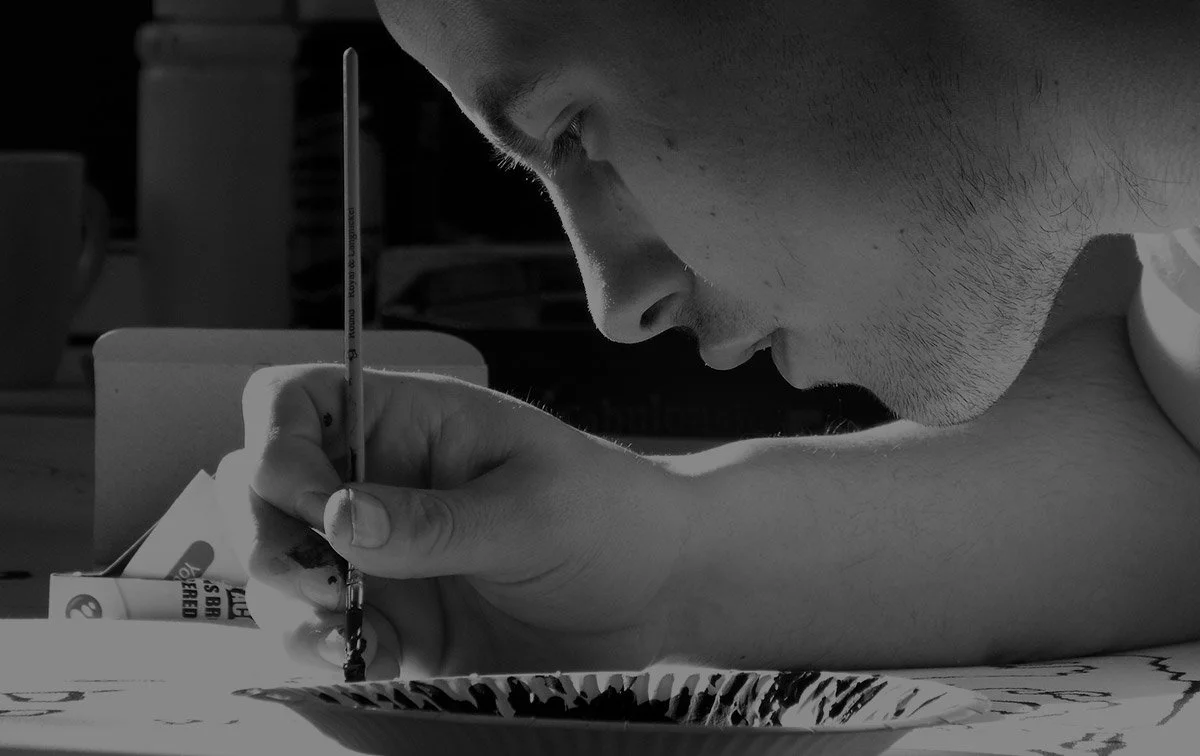
Development of emotions?
A part of human emotional development is the ennoblement of feelings. Collectively, the cultivation of noble feelings is the pre-requisite for the creation of CULTURE.
Emotions as a natural consequence of evolution
Human feelings are the result of a long evolutionary process that originated from urges in animals. Urges emerged as physical-emotional states of animal experience during their struggle for survival in an ever changing environment. In its pursuit to meet the body's needs of self-preservation and reproduction an animal gravitates to things that feel pleasant, and shrinks back from things that feel unpleasant or painful. This instinctual behaviour can already be discerned at the level of cells and bacteria which flourish in suitable substances and shun the harmful ones.
In humans the unfolding mentality (mind) elevates our 'animal' nature by adding thoughts into the process. The result is a mix of thoughts and emotions that produces feelings. In a nutshell, the most basic human nature consists of urges (pertaining to the body) and feelings (pertaining to emotionality).
The idea that emotions developed naturally as a consequence of the evolution came, unsurprisingly, from Charles Darwin himself. In his 1872 book "The Expression of the Emotions in Man and Animals" Darwin argued that emotions evolved via natural selection and serve a function that aids animal and human survival.
Modern views consider basic and social emotions as factors that developed to adapt human behaviour to natural and social environments. Emotion is an essential part in human decision-making and it competes with our urges, on one hand, and with our higher rational faculties of abstract reasoning, on the other hand.
Urges and basic emotions are the faculties that we human beings share with animals. At our primitive stages we strive after pleasant experiences and avoid unpleasant ones, because that’s how our body responds to outer stimuli. Bodily satisfaction stimulates us on the most basic level. That explains why sexual pleasures, alcohol and adrenalin are commonly preferred choices of many people.
FEELING = EMOTION + THOUGHT
Feelings contain an emotion and thoughts about a certain experience.
In feelings the emotion preponderates and the thought is weak (vague).
Emotions and feelings developed through the evolution from animals. They are mammalian elaborations of arousal patterns that can already be observed in reptiles. Electric and chemical signals in the nerve cells reinforce or weaken the brain's activity, and human emotions are an enhancement of this evolutionary process.
Emotional Self-Centredness (Egoism)
In the same way as urges express bodily needs, emotionality expresses personal likes and dislikes. Emotionality is never an expression of objective truths, but an expression of personal, subjective preferences and desires. For the most part primitive emotional life is egoistic and self-centred because it seeks to satisfy bodily needs in the first place. It develops only slowly higher intellectual interests and pursuits.
An emotion is a mentally blind activation energy and plays a vital role in our behaviour before mentality is properly developed. Mentally underdeveloped people tend to have selfish motives because they mostly crave for physical stimulation and needs. They easily yield to bodily impulses as long as their undeveloped mind is not able to restrain passions and to think dispassionately.
The neurobiological explanation for human emotion is the pleasant and unpleasant mental states organised in the limbic system of the mammalian brain.
Emotions are enhancements of animal arousal patterns that happen via neurochemicals such as dopamine, noradrenaline and serotonin which prime or suppress the brain’s activity levels. Those inner processes manifest themselves as body movements, gestures and postures.
Reptiles react to their environment by using pre-set body movements and programmed postures. With mammals, the olfactory sense gained more importance which is proposed to have developed into mammalian emotion and mammalian memory.
The olfactory lobes are proportionally larger than in the reptiles and the odor channels might have developed gradually to what would later become the limbic system, which is the seat of emotions.

Negative Emotionality
Individuals with emotionally hateful tendencies find an outlet for their impulses in harmful action (e.g. aggression, violence), speech (e.g. gossip, slender,) and thought (e.g. hatred, envy, mistrust, fear) because these negative expressions incite them to activity that give them inner stimulation.
The millions of years of evolution and environmental struggle left a trace in human nature in the form of primitive emotional complexes that give rise to fear, hatred and tribalism. Lofty ideals and intellectual pursuits don't meet with much overall interest, because mentality is weakly developed among people, and negative emotionality from those archaic, evolutionary deposits still asserts itself all too strongly in our behaviour.
Emotional Cultivation of Feelings
The reason why it's difficult to overcome one's own negative emotionality is because the evolution of human character qualities is a development of habits.
Nature automatically develops and preserves new capabilities, features and behaviours through successful repetitions across generations that accommodate environmental conditions. In the same way we establish habits and learn new skills through repetitions during our entire life.
The key to mastering our emotionality is to focus on the emotional capabilities and feelings that we want to cultivate and their constant strengthening through repetitions. Good and evil is something that can be learned and unlearned, regardless of the inborn tendencies. Those personal tendencies can be tweaked and changed through the control of personal behaviour and social influences . That's why it's important to take personal as well as collective responsibility for our decisions and behaviours.
Habits
Emotional-mental complexes are habits.
Habits make up a character.
Repetition is the key to emotional development.
Good and evil can be learned and un-learned.
Ennoblement of feelings is the goal of emotional development.
The psychologist Carroll Izard claims that emotions emerged before language and conceptual thinking were acquired. However, language and mentality greatly enhanced our emotional lives, so that we can share our experiences with each other and foresee the future to take appropriate action. Somewhere in the course of that evolution we lost sight of empathy as our most important emotion, a fact which is clearly seen in the numbers of murders, conflicts and wars that were so characteristic of our historical past.
Culture
Music, literature and fine art are the means through which people express their emotionality. These domains constitute what we call culture. What people consider worthy of cultivating in a culture depends on their level of understanding and development. Communities with a primitive, negative emotional understanding prefer crudeness, ugliness and triviality in their 'cultural' work (hatred, sadness, fear etc.). People on loftier levels strive after elevating feelings, noble values and ideals (love, joy, compassion etc.). The task of contemporary art and culture should be to provide an environment for the ennoblement of feelings. Whether it really does it, is another question.
In people with a positive outlook on life the emotional stimulation comes mainly from noble (elevating) feelings: sympathy, enthusiasm, joy, compassion etc. The untroubled, natural character expresses itself easily and spontaneously (naturally). The ennoblement of our emotions is the most important thing to do in order to promote further global development on individual and collective levels.